This year marks 75 years of Israeli independence. While the Diamond Jubilee of Jewish self-determination, a once so heavily oppressed people who continue to face struggles, is indeed something to celebrate, let’s not lose sight of the harm and grief it brought to Palestinians. More than 700,000 Palestinians were forced from their homes in Palestine, seeking safety from the violence of the 1948 Arab-Israeli war. The pain, trauma, and displacement of Palestinians is known as the Nakba, or catastrophe. Please, continue to scroll and explore this time period, and learn about how this tragic event has cemented the current status quo of Israel’s apartheid rule over Palestinians.
The Balfour Declaration – At the end of World War I, about two decades before the Holocaust, the British government declared their support for the creation of a Jewish state in Palestine, a territory of the former Ottoman Empire which collapsed during the War.
Image credits: upload.wikimedia.org
Once the British mandate expired on its set date of May 14, 1948, the Jewish people would be set to declare independence as a sovereign state, the state we know today as Israel.
Jewish Immigration to Palestine, known as the Aliyah, began in the 1800s. However, the immigrations rose higher than ever before after World War I, breaking all records again with the start of the Holocaust in 1933. This mass immigration during the Holocaust is known as the 5th Aliyah.
Shiploads of Jewish people seeking to return to their homeland of Palestine began to arrive in the port cities – namely Jaffa, Haifa, and Gaza. The British government mostly allowed for earlier Jewish immigrants to take control of the immigration processes for those just arriving. It truly was a blessing and miracle for the Jewish people, who had longed for centuries to return, and now they were quickly getting all the necessary documentation to live in Palestine.
There was a large sense among the Jewish people that they had to return to their home and put everything into order for their life there. This follows with the popular saying of the time period, “A land without a people for a people without a land”, which created a disconnect to the fact that Palestinian Arabs were already living there, had been for centuries, and were prospering. As the expiration for the British Mandate approached, the Arabs developed a sense of nationality as Palestinians, and began to organize for the independence of a Palestinian state.
Image credits: hautevitrine.files.wordpress.com
Eventually, tensions started to build between the Jewish immigrants and the Palestinians, as they both tried to work to create a homeland for themselves in the same place. Britain began to limit Jewish immigration to Palestine as a result, hoping to lessen the threat of violence. However, Jewish people continued to immigrate illegally in what is known as the “Bet Aliyah” in order to escape antisemitism and genocide in Europe.
Image credits: static01.nyt.com
Soon, the expiration date of the Mandate was upon the land of Palestine, so Britain hurriedly handed the situation over to the newly-formed United Nations, who drew up the partition plan below. The Jewish population generally accepted the plan, but it was rejected by the Palestinians for one particular reason: 56% of the land would go to the new Jewish state, while they legally owned only about 7% of the land and made up only 33% of the population of Palestine.
Image credits: upload.wikimedia.org
Palestinians, who had never had a chance to self-determination, now had to face giving away a majority of their land to a people who had just arrived and had the backing of many powerful nations.
Then came the Nakba
Image credits: www.middleeasteye.net
As Israel declared independence on the 14th of May, 1948, the surrounding Arab nations declared war. The Jewish militant forces swept through Palestine, trying to take as much land for Israel as possible. This led to unspeakable horrors for Palestinians.
And this infographic only tells part of the story, with many such events taking place undocumented, as well as the continuing struggle for Palestinians in Palestine and around the world today.
Image credits: www.aljazeera.com
After 1948, The Gaza Strip and the West Bank were widely regarded as the Palestinian territories, even smaller than the original UN Partition Plan. However, in 1967, during the Six-Day War, Israel captured both Palestinian territories, as well was the Sinai from Egypt and the Golan Heights from Syria. Though the Sinai was eventually returned to Egypt, Israel began building Jewish settlements in the newly acquired territories. Israel only pulled out of Gaza after the Second Intifada, in September 2005. While the status of the Golan Heights remains disputed, the Oslo Accords, signed by both Israel and the Palestinian Liberation Organization, declared that the West Bank was Palestinian territory, and that Israel would gradually return the land to the Palestinian Authority, the governing body of the region.
Image credits: www.palestineportal.org
However, nearly 30 years since the signing of the Oslo Accords, Israel shows no intention of returning the land like they were supposed to. The Israel-West Bank Wall, built for security reasons by Israel during the Second Intifada, cuts into Palestinian land in the West Bank, chiefly depriving farmers of access to their crops. In addition, Israel continues the construction of settlements for its Jewish citizens, mapped out and constructed to make Palestinian villages and towns separate enclaves in their own territory.
This complicates the path for Palestinian statehood even more, as even if the West Bank tries to declare independence, thousands of Israelis will be in the West Bank, and respecting all of the borders of the illegal settlements would create a fragmented and disconnected Palestinian state, where citizens would have to travel through Israel to go from city to city. This is not even to mention how Palestinian farmers would be unable to access their land, or how Israeli settlements often surround the natural water sources of the West Bank, a critical point to control for drinking water and irrigation access. Instead of getting water from the springs right next to their homes, Palestinians are forced to buy their water from Israel.
Even for Palestinians who go through the lengthy process of becoming Israeli citizens, the challenges don’t end. Not only is it common for Palestinian applicants to be rejected by Israel, but even if they obtain citizenship, they are marked as distinct to Jewish Israeli citizens. While these Palestinians are allowed to participate in Israeli elections, the Israeli government and legal system typically give priority to Jewish citizens for housing rights and civil disputes. The most famous contemporary example is how the Israeli courts attempted to evict Palestinians of the Sheikh Jarrah neighborhood in East Jerusalem to make room for Jewish immigrants.
Image credits: static.972mag.com
And so, as the UN marks it for the first time, and the Palestinians mark it for the 75th time, metal keys have become symbolic of the pain of the Nakba. Many Nakba refugees around the world hold onto the old keys to their homes in Palestine, homes that were burned down in 1948, or homes that were given to Jewish families.
Image credits: idsb.tmgrup.com.tr
This thread has been but a glimpse into the detailed, layered, and complex topic of Palestinian history. Please, if nothing else, please learn about the history of Palestine and the ongoing struggle of the Palestinian people.
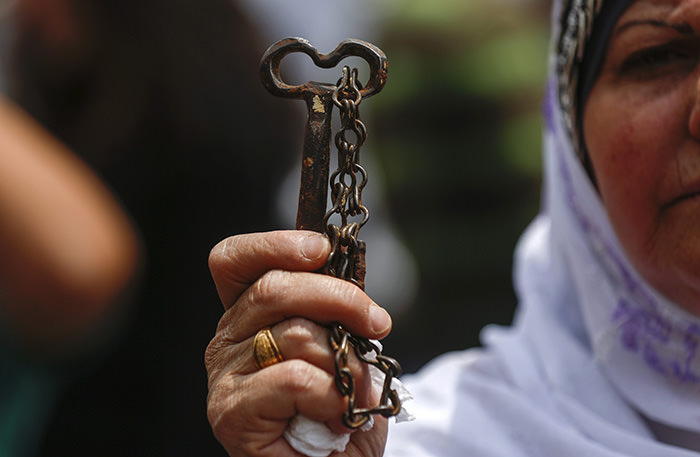
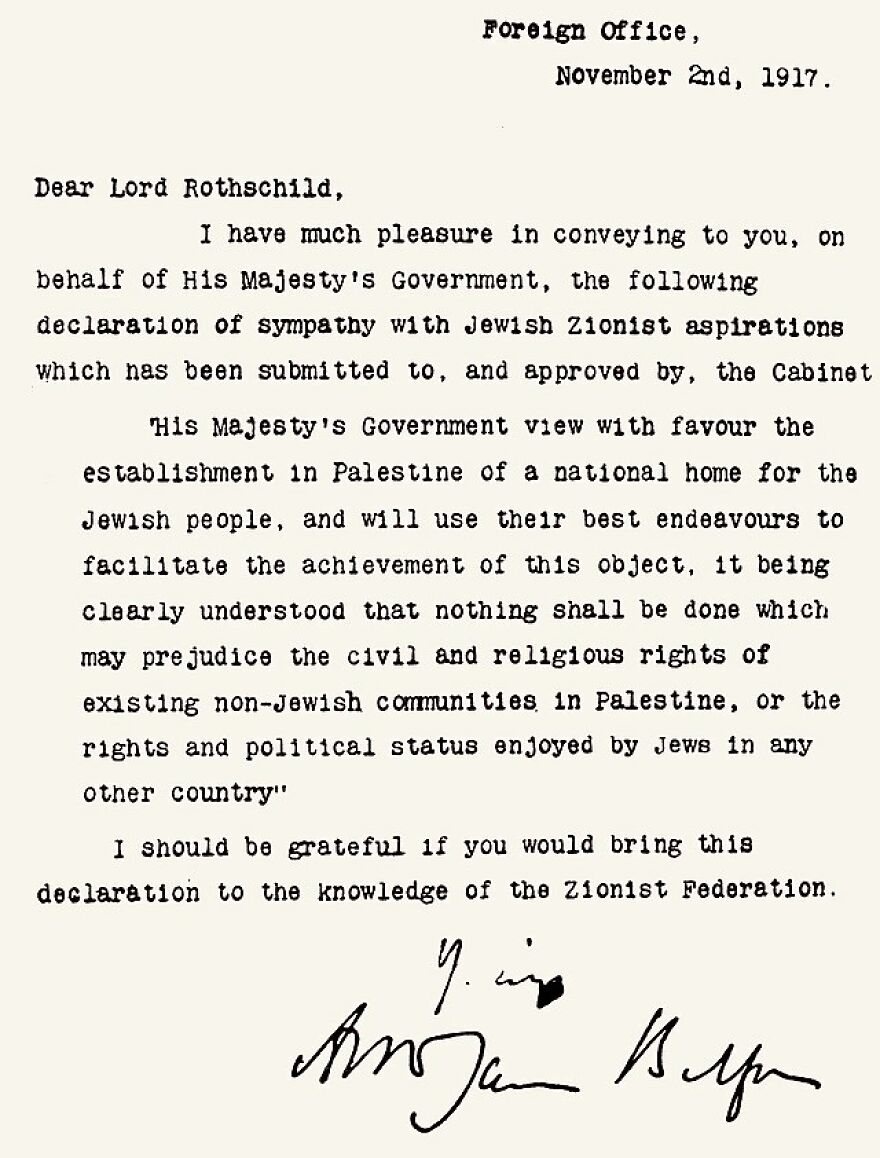
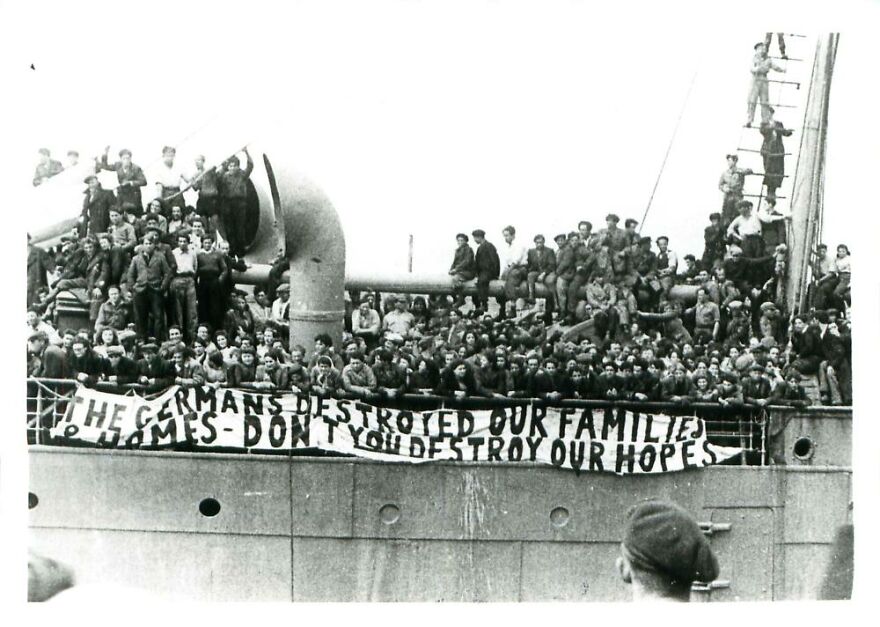
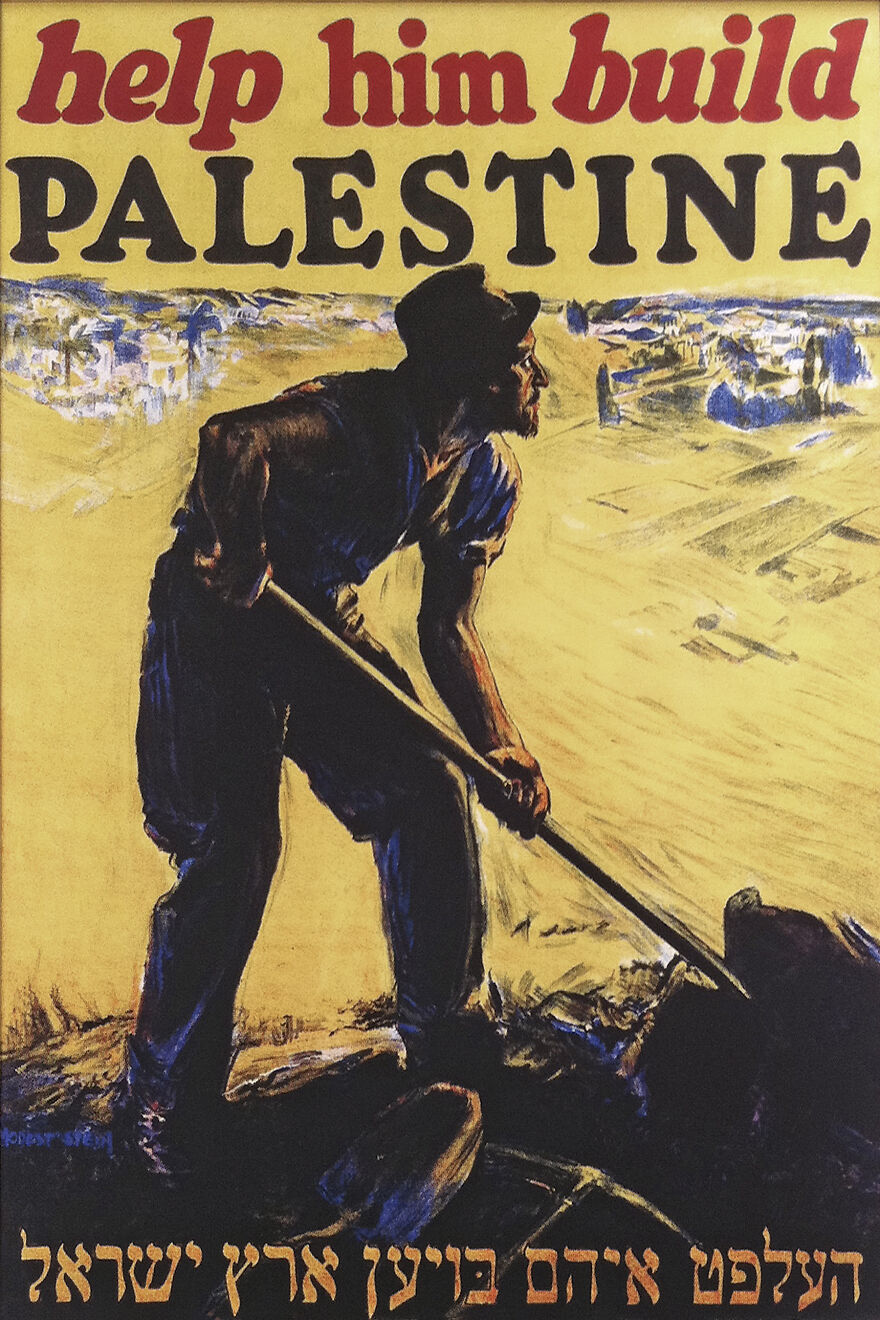
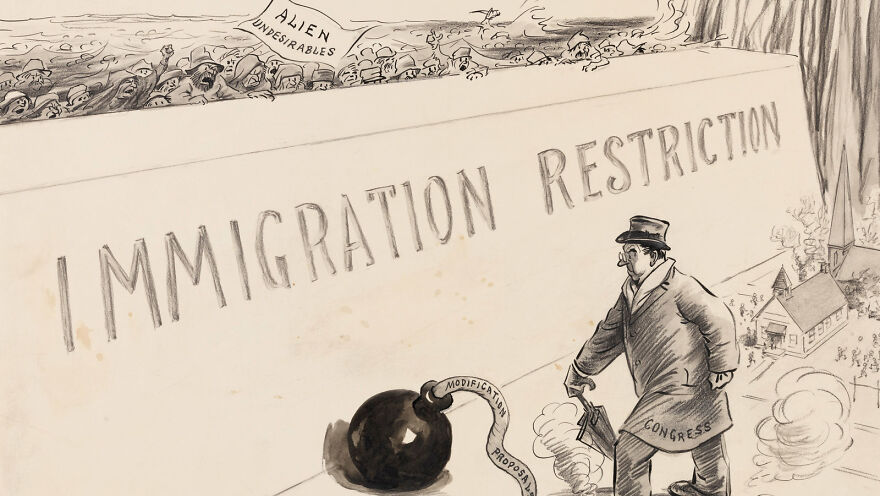
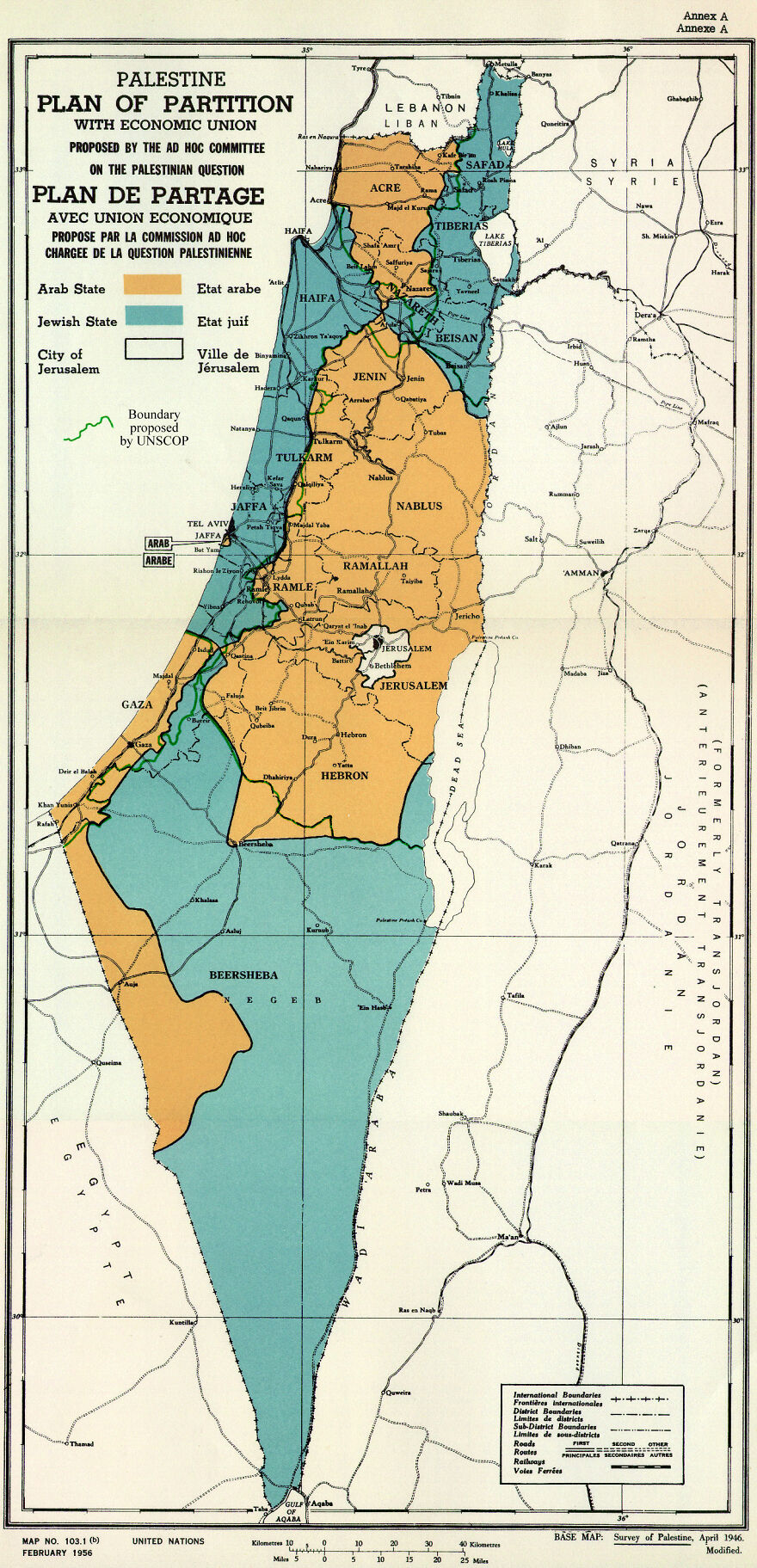
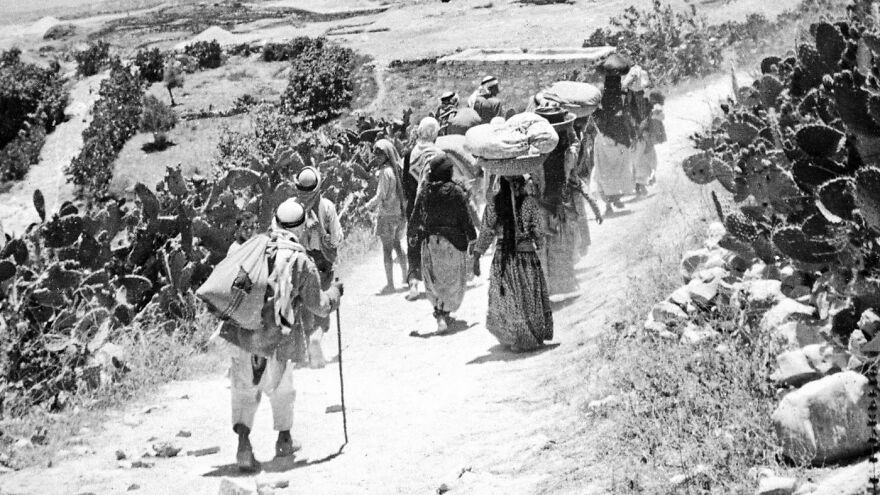
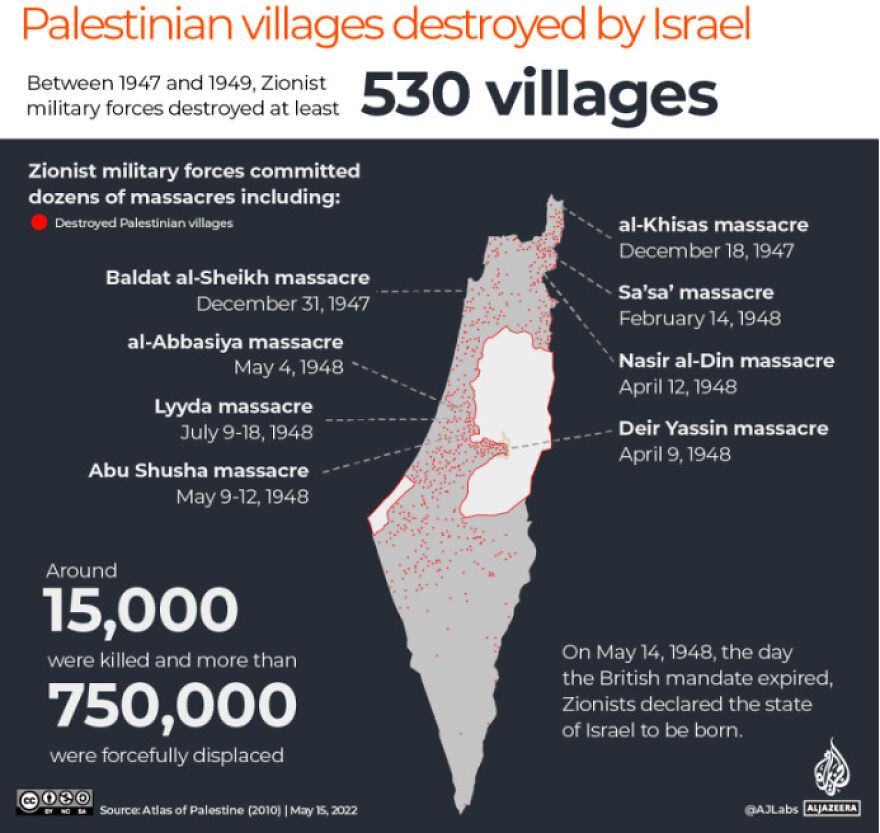
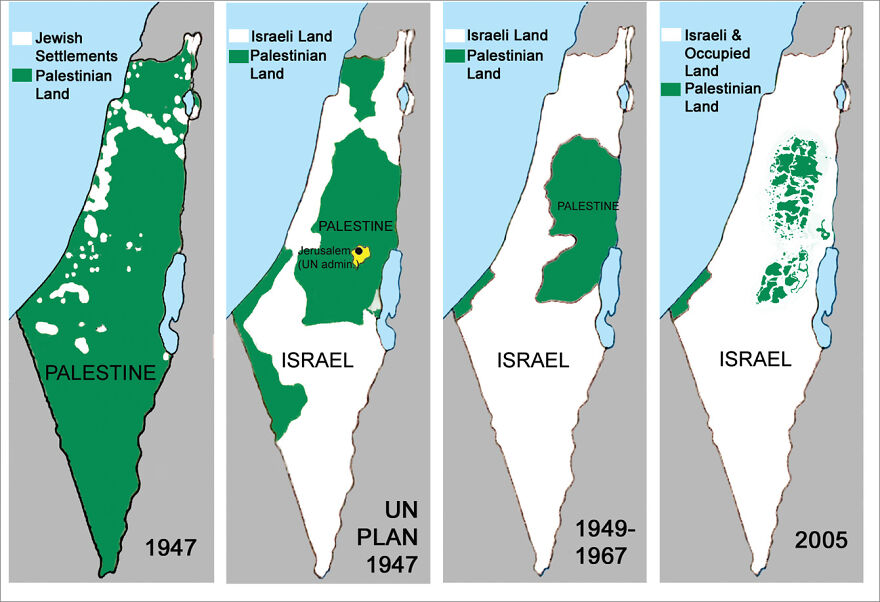
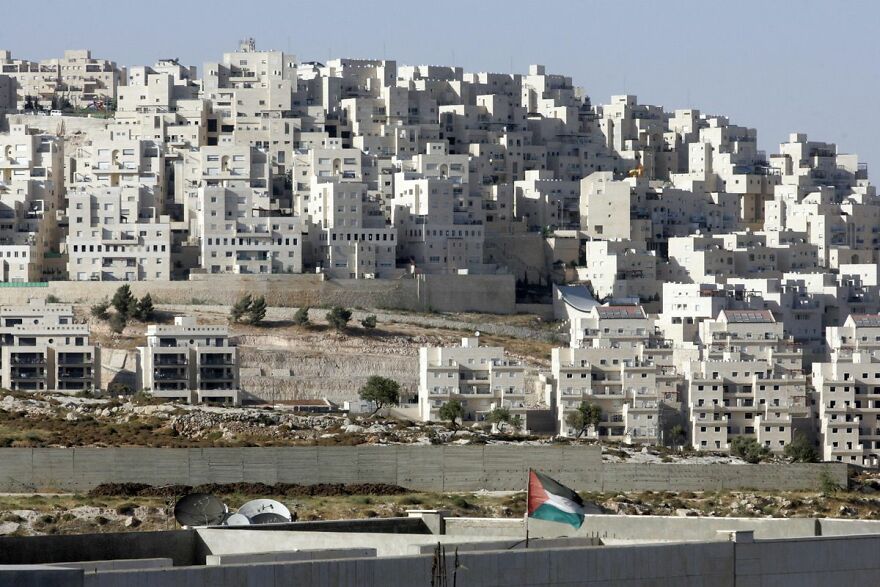
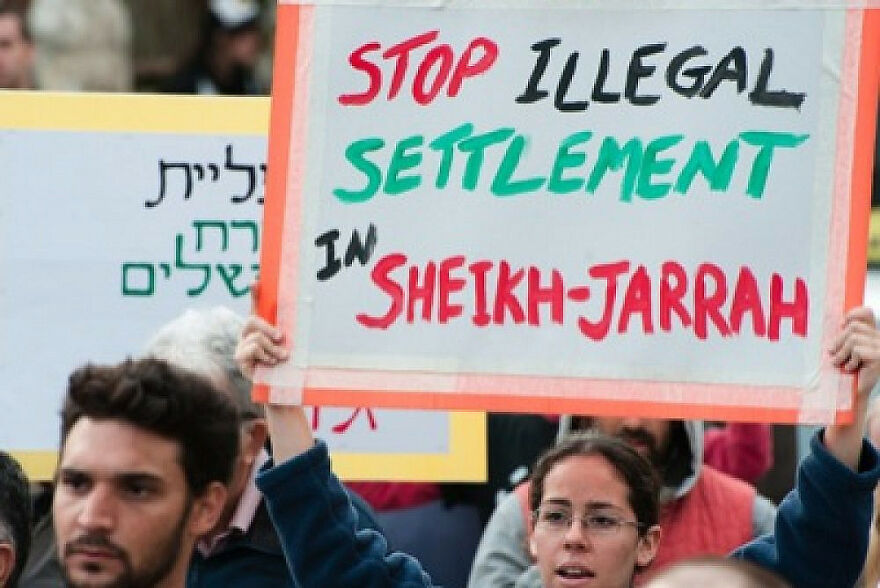
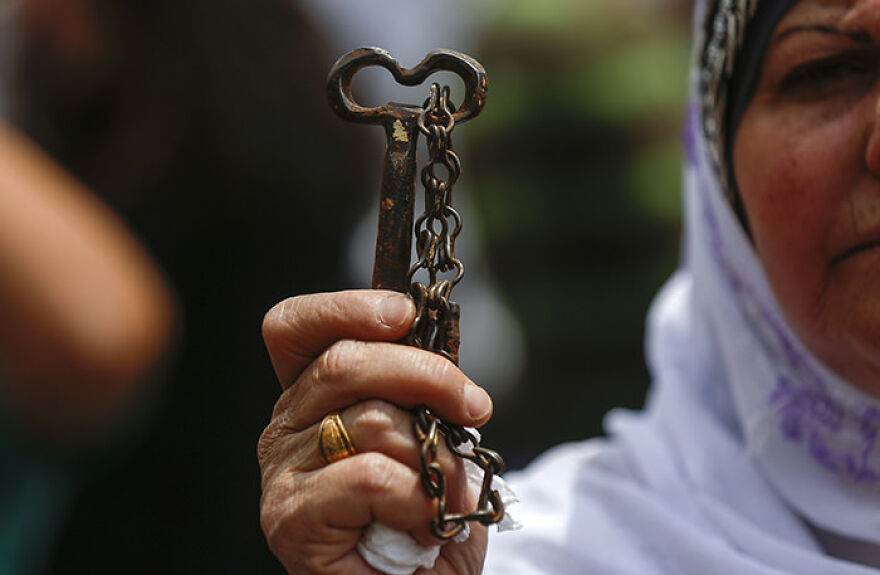




-2
1